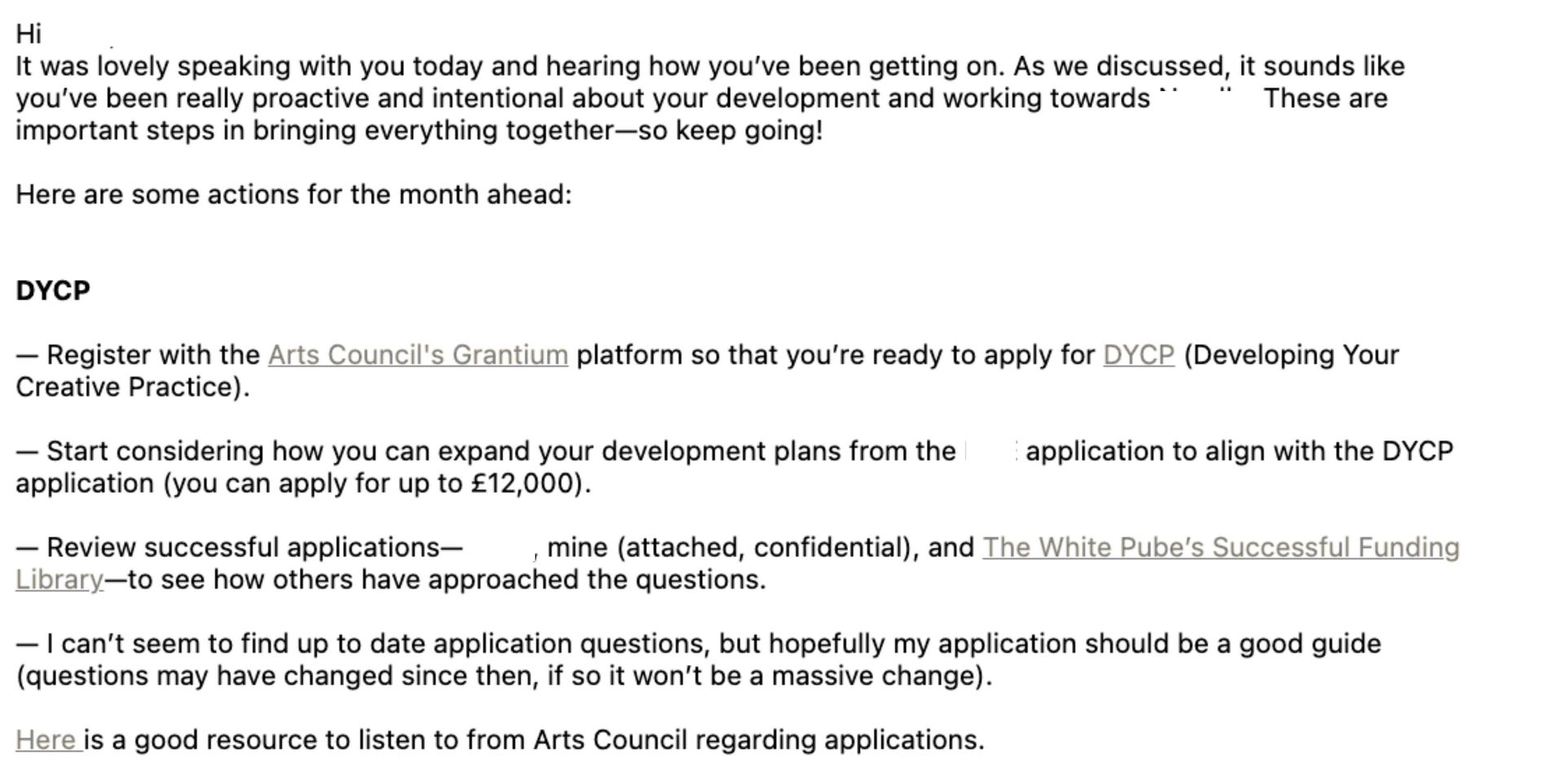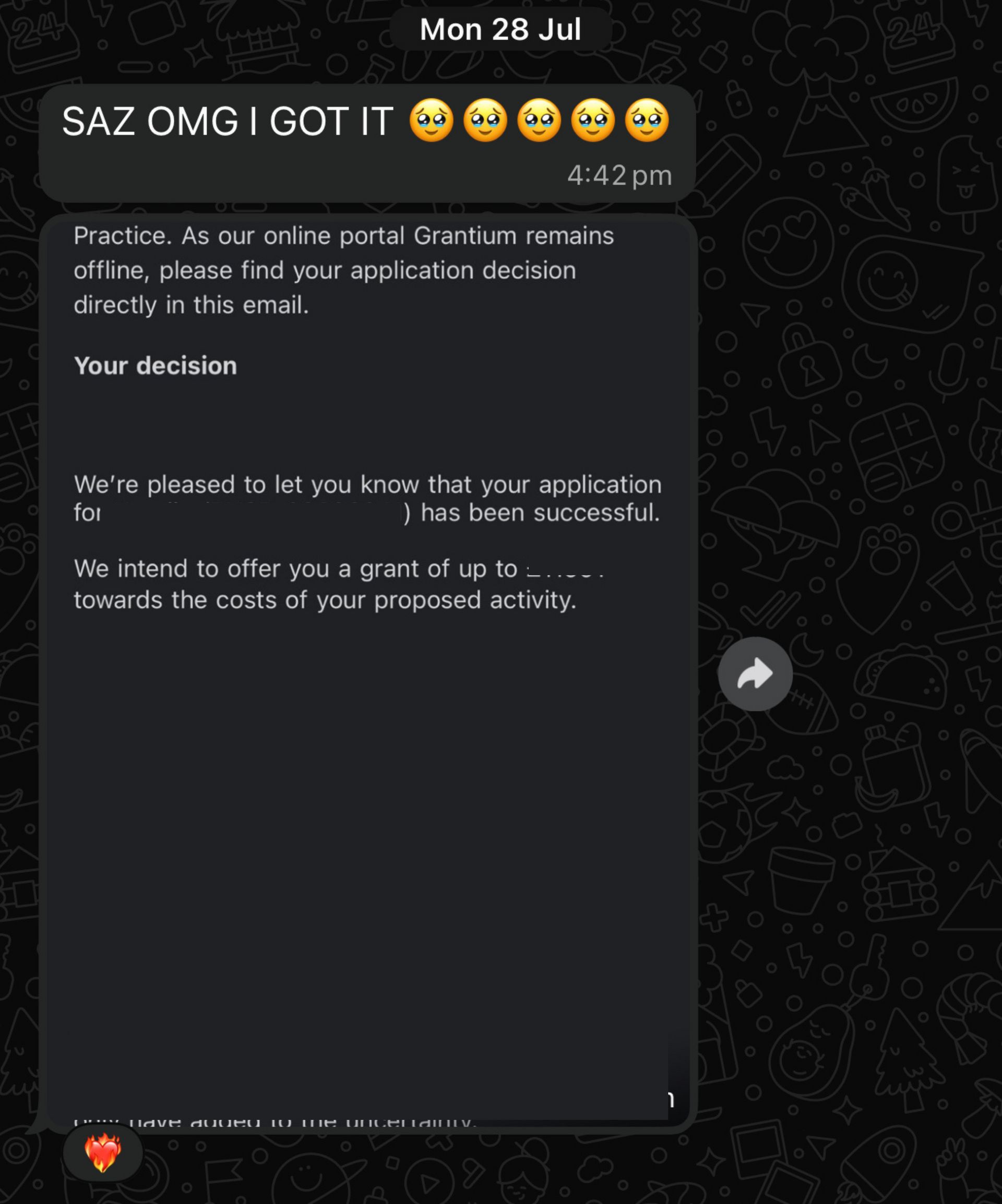- ARTiculate
- Posts
- Don’t Put All of Your Eggs in One Basket (Part 2)
Don’t Put All of Your Eggs in One Basket (Part 2)
When something you long for, something your heart is truly set on, doesn’t happen, only for something far better to come along later—you begin to see things differently. It’s then that you realise without A not going ahead, B, which turned out to be far greater, would never have happened. And that’s when you start to feel thankful for not getting the first opportunity. I’d go even further and say that the disappointment of missing out on something you really wanted can act as a catalyst. It pushes you to go harder next time, to explore more diverse routes, and to aim for even bigger opportunities. It can force you out of your comfort zone, often leading to growth you wouldn’t have otherwise achieved.
Following from last week’s newsletter, here is another artist example of rejection turning into redirection, and not putting all of ones’ eggs in one basket:
Earlier this year, I was approached by an artist seeking guidance on their next steps. We began working on an application for a residency that seemed like the perfect opportunity—offering time, space, funding, and access to resources to support their project. The residency would have provided a studio, mentorship, and a modest fee for both the artist and their mentor. We developed a solid proposal, costed it carefully, and they submitted it. After some time, they received news that they hadn’t been selected for the residency. I say thankfully, because that setback kept them motivated to bring their project to life on a much bigger scale. Of course, at the time it was really painful for them (and very much understandably). I assured them that something bigger was on the way. I really believed it because of the passion they had for the work, and the amazing idea that it was. Using the original residency proposal as a foundation, we developed it further for a DYCP (Developing Your Creative Practice) application when submissions opened. This time, we were able to be more ambitious, because of the bigger budget, refining a plan that allowed for longer-term development and more freedom in terms of outcome, something the residency wouldn’t have provided. Long story short, they were successful with their DYCP application, receiving nearly five times the funding they would have had from the residency. Below is an email exchange with the artist after learning they hadn’t got the residency, followed by the message confirming their DYCP success. I have blocked out their name and other identifying details such as application names and project names for now, as with the busyness of the week, and like with last week’s example I didn’t get around to asking if I could name them).
March 2025


April 2025

July 2025


It’s worth noting that the initial application was by no means a waste of time. In fact, it laid the foundation for the larger, more successful application that followed. That first attempt allowed the artist to really think about what they wanted to achieve and why—to explore what was required in terms of time, physical resources, and mentorship, and to shape a realistic timeline that fitted around their everyday life. It also eliminated much of the “thinking time” that often consumes application periods and, importantly, gave them the confidence to believe in the work they were proposing.
When thinking about redirection and not putting all your eggs in one basket, it’s not just about increasing your chances of success. It’s also an exercise in developing your ideas—thinking carefully about what you want to do and how you want to do it, considering how to work within a set budget, and identifying who you can enlist to support your development. Incorporate this mentality into your application processes; it will strengthen both your strategy and your confidence.
This newsletter is fuelled by care, commitment and uplifting the careers of artists, alongside generous donations from some of you, which I am very grateful for. If you'd like to support this newsletter, you can donate as little as the price of a coffee via Ko-fi or PayPal.
If you’ve made it to this part—thank you for reading! I hope there’s something in here that resonates or encourages you to keep going.
And if you know someone who might benefit from these newsletters or sessions, feel free to forward this on and encourage them to subscribe.
Until next week.
Reply